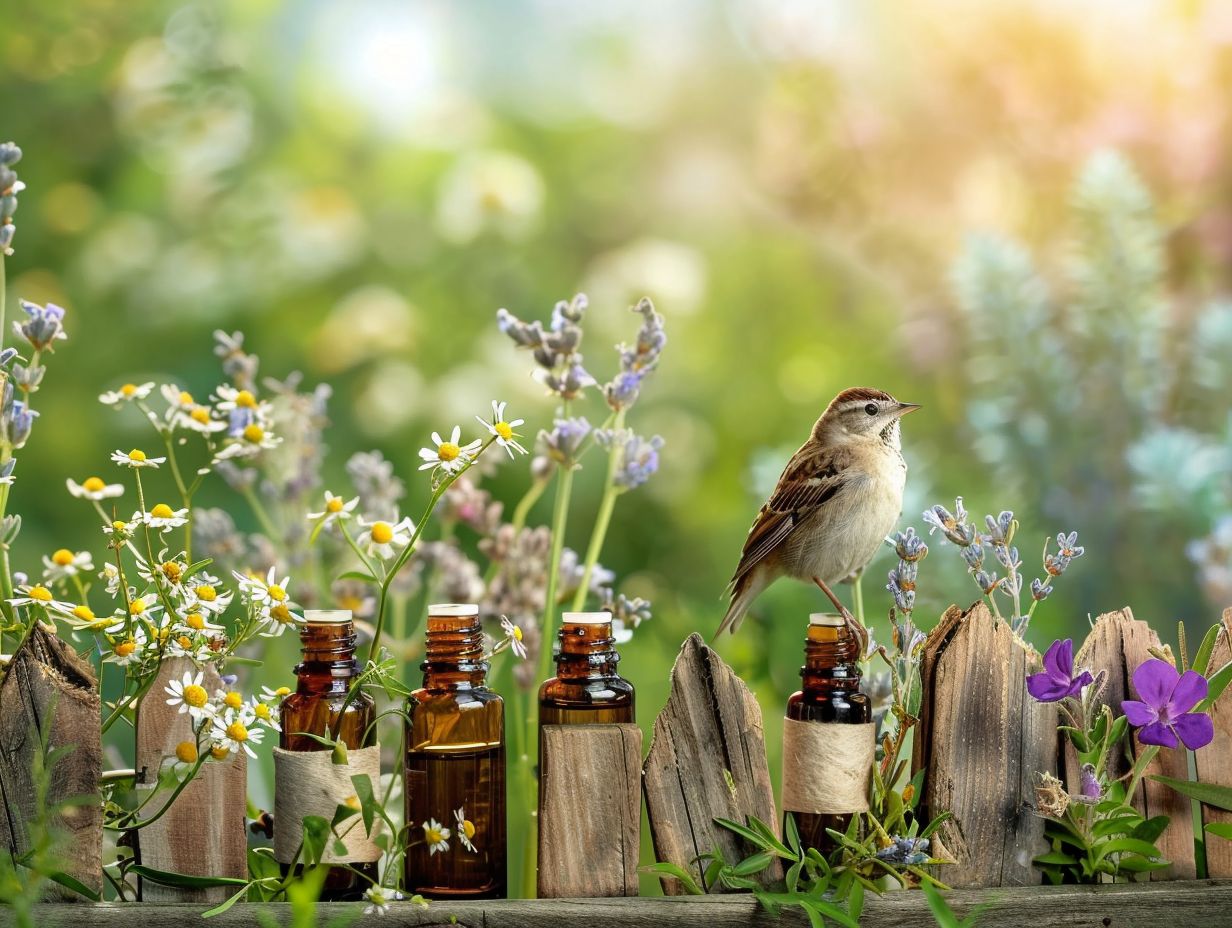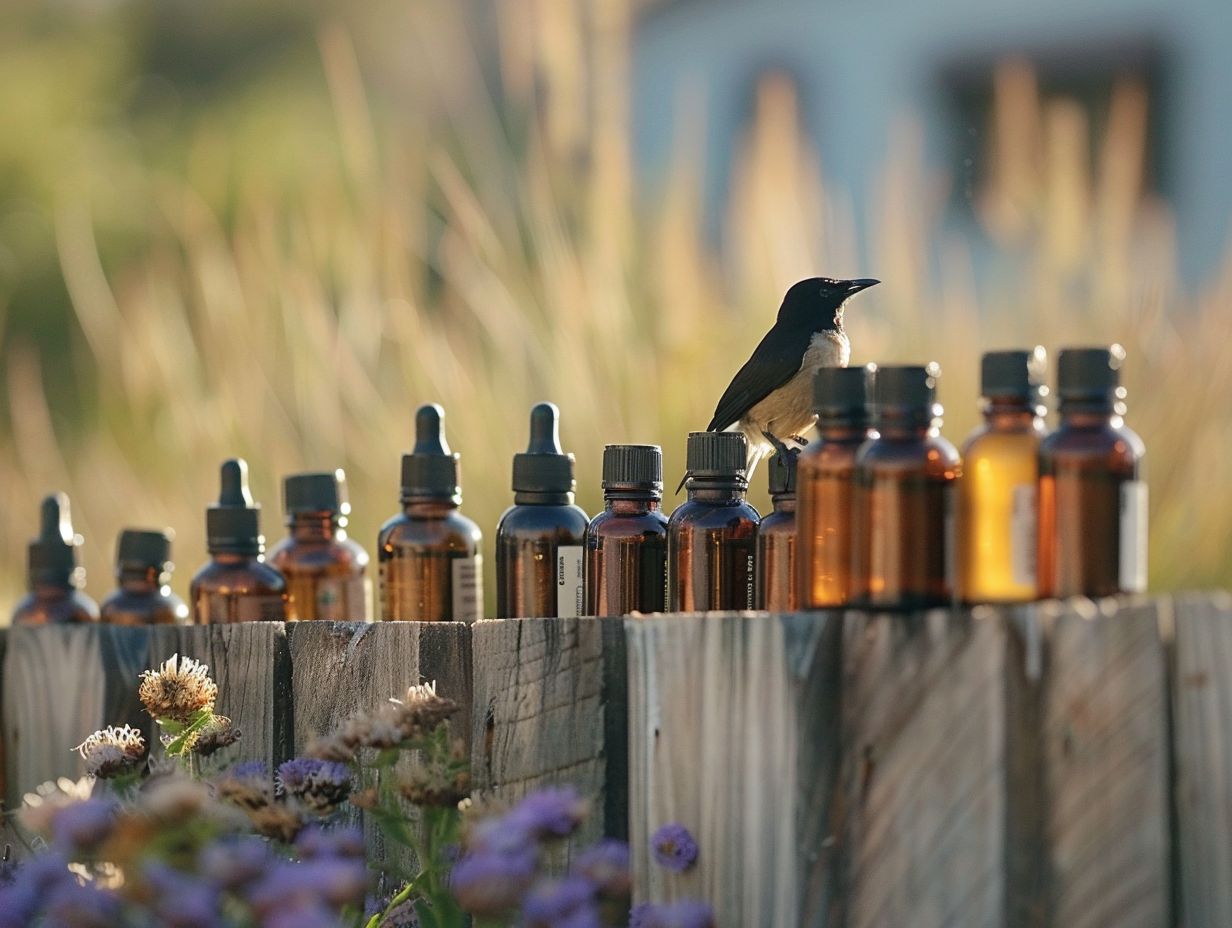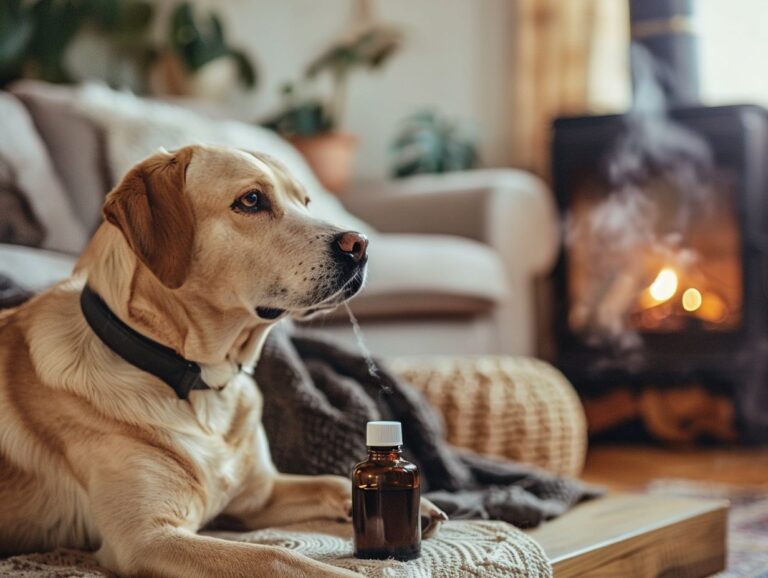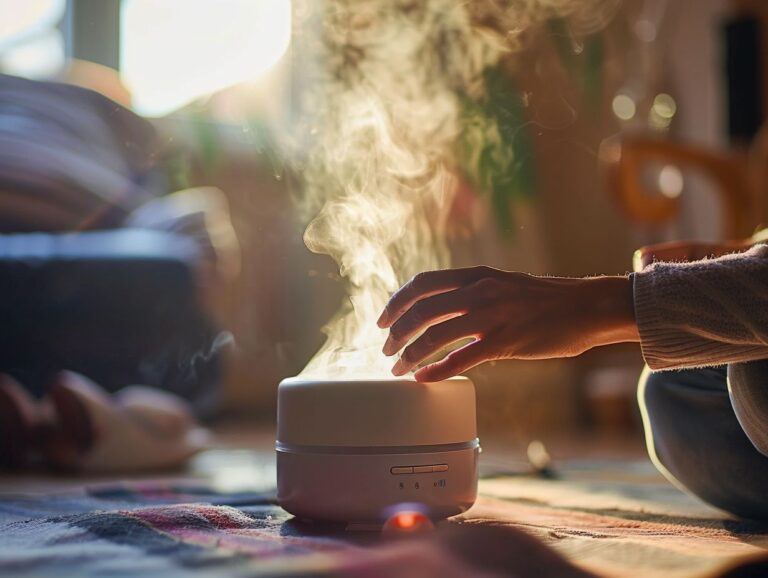Will Essential Oils Keep Birds Away
Essential oils have gained popularity for their various uses, from promoting relaxation to repelling insects. But can they also keep birds away?
We will explore the effectiveness of essential oils in deterring birds, as well as the best oils to use for this purpose. Learn how these oils work to repel birds, whether they are safe for our feathered friends, and how to use them effectively.
Delve into the world of essential oils and bird control.
Key Takeaways:
What Are Essential Oils?
Essential oils are concentrated liquids containing aromatic compounds extracted from plants, such as peppermint, lemon, and eucalyptus. They are often used in aromatherapy and alternative therapies due to their therapeutic properties and strong scents.
Extraction of essential oils is a meticulous process that involves methods like steam distillation, cold pressing, or solvent extraction. Steam distillation, for instance, is the most common method where steam passes through the plant material, carrying the aromatic molecules which are then condensed into a liquid form.
These oils find application in a wide range of industries. For example, lavender oil is used in skincare products for its calming and anti-inflammatory properties, while tea tree oil is known for its antibacterial and antifungal attributes, making it a staple in natural cleaning products.
What Are the Uses of Essential Oils?
Essential oils have a wide range of applications, including aromatherapy, skincare, cleaning products, and even pest control. Their aromatic properties make them popular in creating natural remedies and eco-friendly solutions.
Many people use essential oils for their calming effects in aromatherapy, helping to reduce stress and promote relaxation. In beauty, essential oils are added to skincare products for their skin-nourishing and rejuvenating qualities. These oils are utilized in household cleaning to enhance the effectiveness of natural cleaners by adding pleasant scents and antibacterial properties. Some oils like citronella are also known for their ability to repel insects, making them a popular choice for natural pest control methods. The versatility and benefits of essential oils have made them a staple in many daily routines.
Can Essential Oils Keep Birds Away?
Essential oils are known for their aromatic properties, which can act as a natural bird repellent. By using certain essential oils, homeowners can deter birds from nesting or roosting in specific areas of their property.
These essential oils work by emitting strong scents that birds find unpleasant, disrupting their natural inclination to settle in those areas.
Peppermint oil, eucalyptus oil, and citronella oil are among the most effective options, known for their ability to repel various bird species without causing harm.
Plus their bird-repelling properties, essential oils are favored for being eco-friendly and non-toxic, making them a safe and humane alternative to harsh chemicals or harmful methods that can be damaging to the environment. With the growing emphasis on sustainability and natural solutions, essential oils have emerged as a popular choice for bird control that aligns with these principles.
What Are the Best Essential Oils for Repelling Birds?
In terms of repelling birds, several essential oils stand out for their effectiveness. Peppermint, citronella, eucalyptus, lemongrass, and tea tree oils are among the best options for creating aromatic bird repellents.
Peppermint oil’s strong, minty aroma is known to deter many pests, including birds, due to its overpowering scent. Citronella oil, commonly used in insect repellents, also works wonders in keeping birds at bay with its fresh, citrusy fragrance. Eucalyptus oil, with its camphor-like smell, is effective in repelling birds while promoting a calming atmosphere.
Lemongrass oil, known for its bright and citrusy scent, is a natural choice for bird deterrents, as birds dislike the strong fragrance. Additionally, tea tree oil is renowned for its antifungal and antibacterial properties, making it a versatile choice for bird repellents.
These essential oils can be used individually by diluting them in water and spraying the mixture around areas where birds tend to gather. Alternatively, they can be combined for enhanced effectiveness. Mixing a few drops of each oil in a spray bottle with water can create a potent bird repellent blend that can be used indoors or outdoors.
Peppermint Oil
Peppermint oil is a potent aromatic repellent that can help in keeping birds away from nesting areas. Its strong scent is known to deter birds without causing them harm.
When used as a bird repellent, peppermint oil not only wards off unwanted avian visitors but also offers additional benefits. The natural and non-toxic properties of peppermint oil make it a safe option for deterring birds, especially in outdoor spaces. The invigorating scent of peppermint oil can create a refreshing atmosphere, while its repellent properties keep birds at bay without harming them. This dual-action feature makes it a popular choice for those looking to maintain a bird-free environment without resorting to harsh chemicals.
Citronella Oil
Citronella oil is not only known for repelling insects but also works effectively in deterring birds due to its strong and distinct scent. By using citronella oil, homeowners can create a bird-free environment naturally.
This essential oil extracted from plants like lemongrass has gained popularity for its versatile applications, particularly in pest management. Birds are sensitive to the aroma of citronella, making it an effective tool in keeping them away from gardens, crops, and outdoor spaces. The potent scent of citronella interferes with birds’ ability to sense their surroundings, causing discomfort and driving them away without causing any harm. To apply citronella oil in bird control, dilute it in water and spray the solution on surfaces or use it in diffusers strategically placed to deter unwanted avian visitors.
Eucalyptus Oil

Eucalyptus oil is known for its aromatic qualities that can effectively repel birds from specific areas. Its refreshing scent serves as a natural bird deterrent without causing harm to the creatures.
The volatile organic compounds found in eucalyptus oil create a strong scent that birds find unpleasant, leading them to avoid treated areas. This non-toxic solution is safe for both birds and the environment, making it a humane choice for bird control. Eucalyptus oil can be easily diluted in water and sprayed around gardens, rooftops, or outdoor furniture to discourage birds from nesting or roosting. To enhance its effectiveness, refreshing the application every few days is recommended to maintain the potent scent that deters birds. Integrating eucalyptus oil into a weekly maintenance routine can help prevent bird infestations and protect outdoor spaces.”
Lemongrass Oil
Lemongrass oil, with its concentrated fragrance, is an effective option for deterring birds from nesting areas. Its strong smell disrupts the bird’s sense of smell, making the environment less inviting for them.
The sharp citrusy scent of lemongrass oil can also interfere with the birds’ communication channels, making it challenging for them to stay comfortable in the vicinity. By applying this natural bird management solution, individuals can ensure that their property remains bird-free without the use of harmful chemicals that could harm the birds or the environment.
Tea Tree Oil
Tea tree oil, known for its distinct aroma, can be a useful bird repellent option for homeowners. By leveraging the scent of tea tree oil, individuals can create a bird-free environment naturally.
Due to its strong smell, tea tree oil acts as a powerful deterrent, making it unappealing for birds to inhabit certain areas. When birds encounter the aroma of tea tree oil, they are likely to seek alternative locations, minimizing the chances of them causing disturbances or mess.
The application methods for using tea tree oil as a bird repellent vary; for outdoor settings, a few drops of tea tree oil can be added to a spray bottle with water and spritzed around areas prone to bird activity, such as roofs, windowsills, or balconies. Hanging cotton balls soaked in tea tree oil near problem areas can also help in deterring birds effectively.
How Do Essential Oils Repel Birds?
Essential oils repel birds primarily through their strong smell and irritating properties. The potent aromas of these oils interfere with the birds’ sense of smell, discouraging them from roosting or nesting in treated areas.
The way in which essential oils work as bird repellents is fascinating. Birds possess a highly developed sense of smell, crucial for survival; therefore, the overpowering scents of essential oils disrupt their olfactory senses, making them uncomfortable. The irritating properties of certain essential oils can act as a deterrent. Birds find these sensations unpleasant, prompting them to avoid the treated areas. Some oils are also known to cause mild skin irritation, further deterring birds from staying in a specific location.
Strong Smell
The strong smell emitted by essential oils plays a crucial role in repelling birds. These aromatic bird repellents create an environment that is inhospitable to birds, deterring them from settling in the area.
Essential oils like peppermint, citronella, and lemon eucalyptus are known for their potent scents that birds find unpleasant. Their strong fragrance disrupts the birds’ olfactory senses, making the area unattractive for them to linger. By using these powerful aromatic bird repellents strategically, you can ensure that your surroundings remain bird-free without causing harm to the birds. The natural approach of using essential oils not only effectively repels birds but also provides a safer and eco-friendly alternative to traditional bird control methods.
Irritating Properties
Essential oils with irritating properties can effectively deter birds by causing discomfort or irritation to the birds when they come in contact with treated surfaces. This irritation encourages birds to seek alternative nesting or roosting sites.
It’s important to note that essential oils are a natural and non-toxic approach to bird deterrence, making them a safe option compared to harmful chemicals. When applied correctly, these oils act as a natural bird repellent by emitting scents that various bird species find unpleasant or even intolerable.
By strategically placing these oils in areas where birds congregate or perch, homeowners can effectively discourage feathered intruders without causing them any harm. This method not only protects property from bird-related damage but also ensures a humane approach to managing bird-related issues.
Are Essential Oils Safe for Birds?
When used correctly and in proper dilution, essential oils can be safe for birds. There are potential risks associated with certain oils or improper usage that homeowners should be aware of.
It’s crucial for bird owners to understand the importance of dilution when using essential oils around their feathered companions. Dilution ensures that the concentration of the oil is safe and gentle on the sensitive respiratory systems of birds. Mixing essential oils with a carrier oil such as coconut or almond oil can help reduce the potency and minimize any adverse effects. Proper application methods, like diffusing oils in well-ventilated areas away from bird habitats, can lower the risk of inhalation by the birds.
Dilution and Proper Usage

When diluting essential oils for bird repellent purposes, it is crucial to follow the recommended guidelines to avoid any potential harm. A general rule of thumb is to use a carrier oil such as jojoba or almond oil and mix it with a few drops of the essential oil.
Creating a mild solution is key to ensuring that the scent is effective in repelling birds without overwhelming them. Too strong a mixture can be harmful to their respiratory systems and overall well-being.
Once the oil is diluted, it can be applied strategically near areas where birds congregate, such as around crops or on windowsills. Avoid direct application to bird feeders or baths to prevent accidental ingestion by birds.
Potential Risks
While essential oils can be safe when used correctly, there are potential risks of harm to birds if certain oils are used in concentrated form or if birds ingest the oils accidentally. Homeowners should be cautious and informed when using essential oils around bird habitats.
When essential oils are used in their concentrated form, they can pose a serious threat to birds due to their potent nature which may overwhelm a bird’s sensitive respiratory system. Ingesting essential oils can also be toxic to birds and may result in serious health complications or even fatalities. It’s crucial to remember that birds have a different metabolic system than humans, making them more susceptible to the adverse effects of concentrated oils.
To minimize risks, homeowners need to ensure proper ventilation when using essential oils, keeping birds away from direct contact with diffusers or open containers. It’s essential to store oils securely out of reach of birds to prevent accidental ingestion. Monitoring birds for any signs of distress or unusual behavior when introducing essential oils can also help in promptly detecting any negative reactions and seeking veterinary assistance if needed.
How to Use Essential Oils to Keep Birds Away?
There are various methods to use essential oils for keeping birds away, including diffusing the oils, spraying them in target areas, soaking cotton balls with oil, and hanging sachets infused with oils. Each method offers a unique way to repel birds effectively.
Diffusing essential oils is a popular method that involves dispersing the oils in the air using a diffuser, creating a barrier that birds find unpleasant. This technique not only deters birds but also fills the air with pleasant aromas, creating a soothing environment.
Another technique is to create a bird-repellent spray by diluting essential oils with water and spraying it on surfaces where birds tend to gather. This method is convenient for targeting specific areas that require protection from bird intrusion.
Alternatively, soaking cotton balls with essential oils and strategically placing them in bird-prone areas can effectively discourage birds from approaching. The scent emitted by the oil-soaked cotton balls acts as a natural deterrent.
Diffusing
Diffusing essential oils releases their strong scents into the air, creating an aromatic barrier that discourages birds from entering the treated space. This method is effective in maintaining a bird-free environment naturally.
Using essential oils to repel birds is a humane and eco-friendly alternative to harsh chemicals. The scents act as natural deterrents, making the area unappealing for birds without causing harm. When choosing a diffuser, opt for ones like ultrasonic or nebulizing diffusers that disperse oils effectively.
Peppermint oil, citronella oil, and lemon eucalyptus oil are popular choices as they have strong scents that birds find unpleasant. These oils help in masking the bird-attracting scents and create a pleasant environment for humans. Experiment with different oils and diffusing methods to find what works best for your space.
Spraying
Spraying essential oils in areas frequented by birds helps create a barrier that repels them due to the oils’ repellent properties. This method allows homeowners to target specific spots where birds gather or roost. “
When using essential oils as a bird deterrent, it’s important to mix the oil with water before spraying to ensure even distribution.
- Choose oils known for their bird-repelling properties, such as peppermint, citronella, or clove oil.
- Regularly reapply the spray especially after rainfall as it may wash away the scent.
- Focus on areas where birds tend to roost or nest, such as eaves, ledges, or window sills.
By applying these best practices, homeowners can effectively maintain bird-free zones using natural repellents.
Soaking Cotton Balls
Soaking cotton balls with essential oils and strategically placing them in bird-prone areas can act as an effective bird repellent. The infused cotton balls emit scents that deter birds from nesting or roosting in the vicinity.
For optimal results, consider using a mixture of lavender, peppermint, or citrus essential oils, known for their strong scent properties that birds find unpleasant. To deploy the scented balls, simply dip the cotton balls into the essential oil blend and place them in areas where birds congregate, such as windowsills, balconies, or garden perimeters.
To refresh the potency of the repellent, periodically add a few drops of essential oil to the existing cotton balls. Alternatively, you can replace the cotton balls altogether after a few weeks to maintain the effectiveness of the bird deterrence.
Hanging Sachets
Hanging sachets infused with essential oils provides an alternative method for repelling birds. The aromatic sachets emit scents that create a bird-free environment in a natural and eco-friendly manner.
Placing these scented sachets strategically around your property can help deter birds from nesting or foraging in unwanted areas. Hang them near entry points, windows, or balconies to create a barrier that birds find unpleasant. The oils, often derived from herbs like peppermint or lavender, not only repel birds but also add a pleasant fragrance to your surroundings.
Regularly refreshing the sachets ensures the effectiveness of this method. By replacing the oils or re-infusing the sachets with fresh essential oil, you can maintain a consistent bird-repelling barrier. This low-cost solution is also visually appealing and can blend seamlessly into your outdoor decor.








